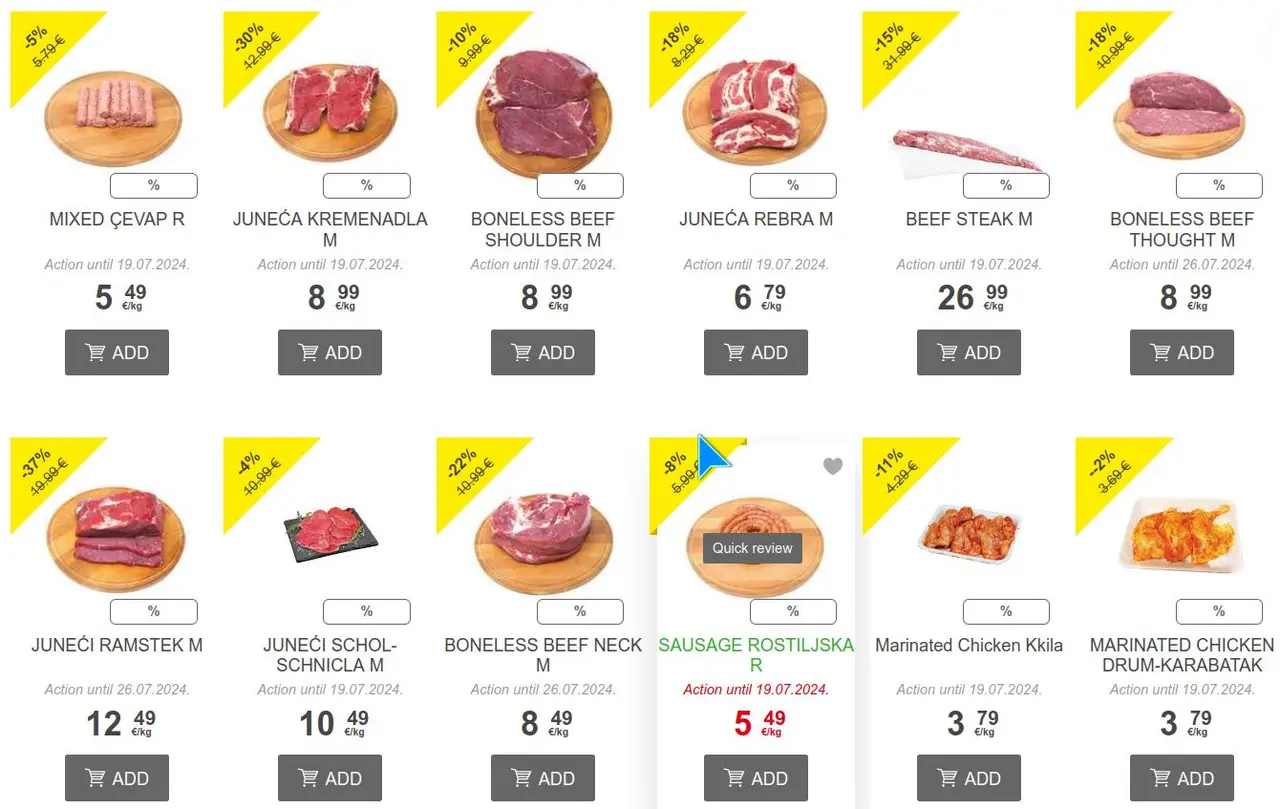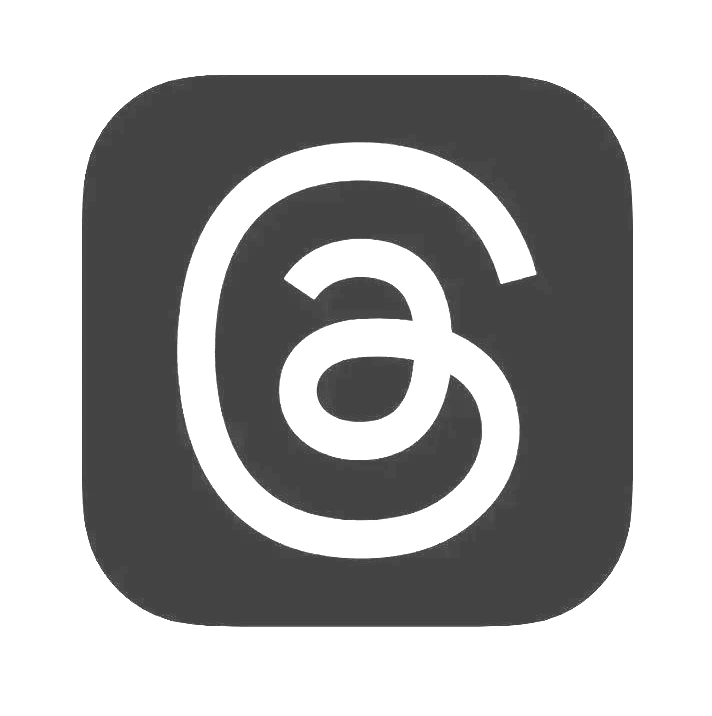What It's Really Like to Live in Podgorica, Montenegro
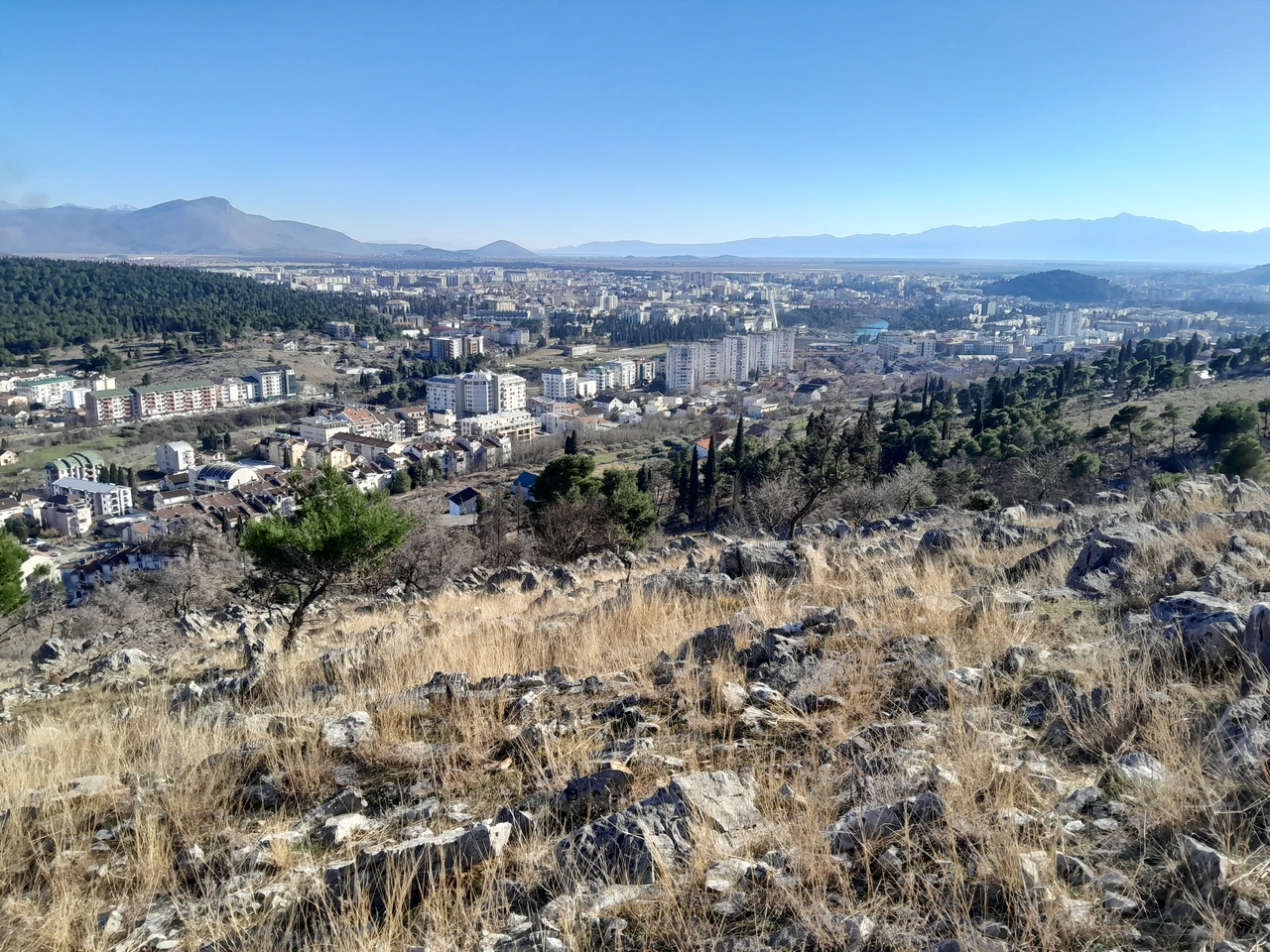
Contents
- Introduction
- The Small Town Feel
- The Climate
- Cost of Living
- Residence Permits
- Internet
- Windows
- Electrical Outlets
- Paying Bills
- Buying Groceries
- Work Schedule
- Restaurants
- Online Shopping
- Nature
- Community
- Doing Business
- Schools
- Healthcare
- Pets
- The Montenegrin Language
- Conclusion
Introduction
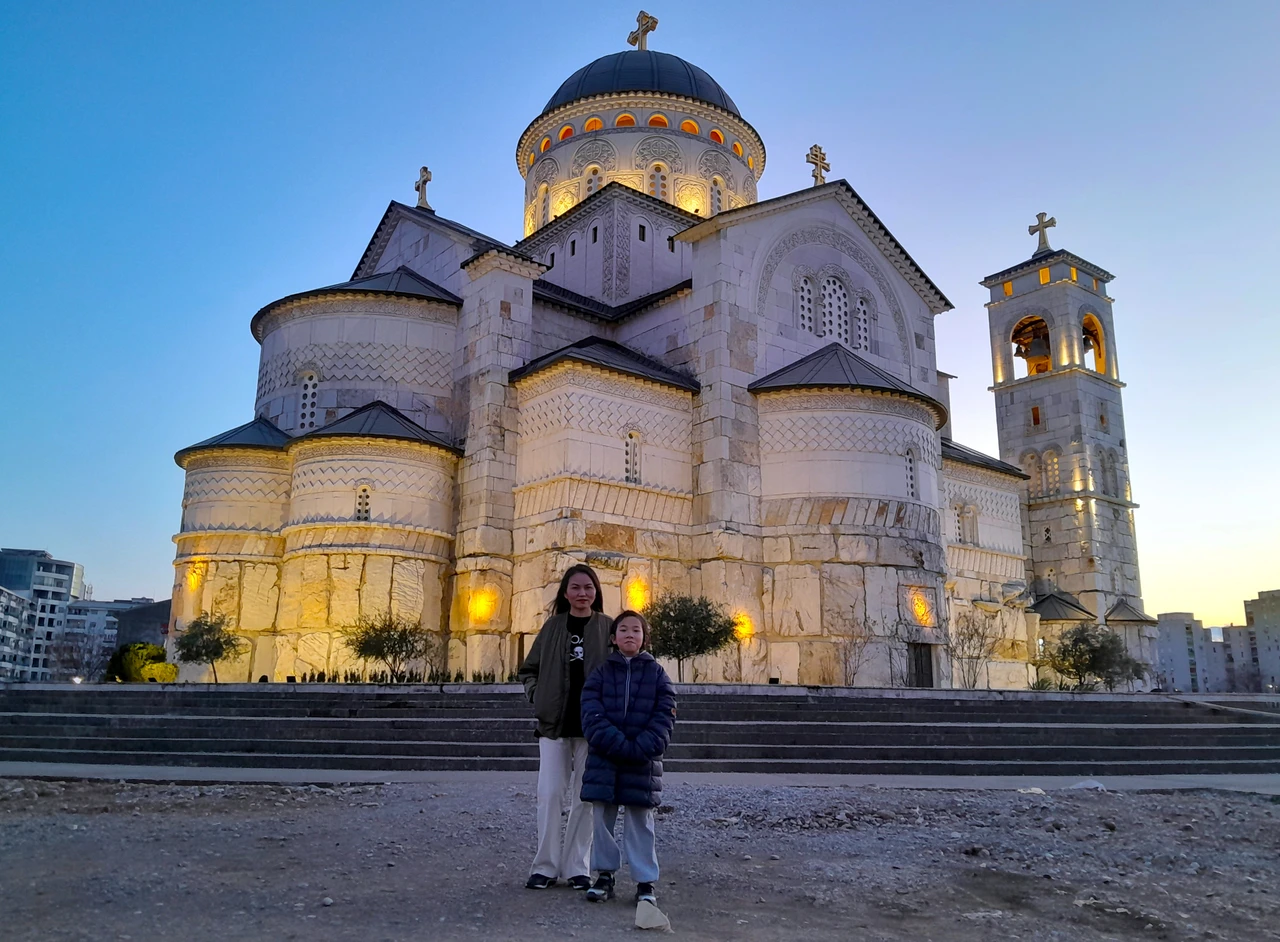
I've been living in Montenegro for over half a year now, so I figured that it was about time to write about what it's really like to live here. I know that there are plenty of splashy, vibrant YouTube videos concerning life in Montenegro out there, but most don't tend to capture the flow and nuances of daily life in this small but beautiful country.
If you haven't read my previous article on Montenegro yet, you might want to catch up on that first, as I won't be repeating content from that article here.
So without further ado, here is a collection of slices into the daily life of a Montenegro resident.
The Small Town Feel
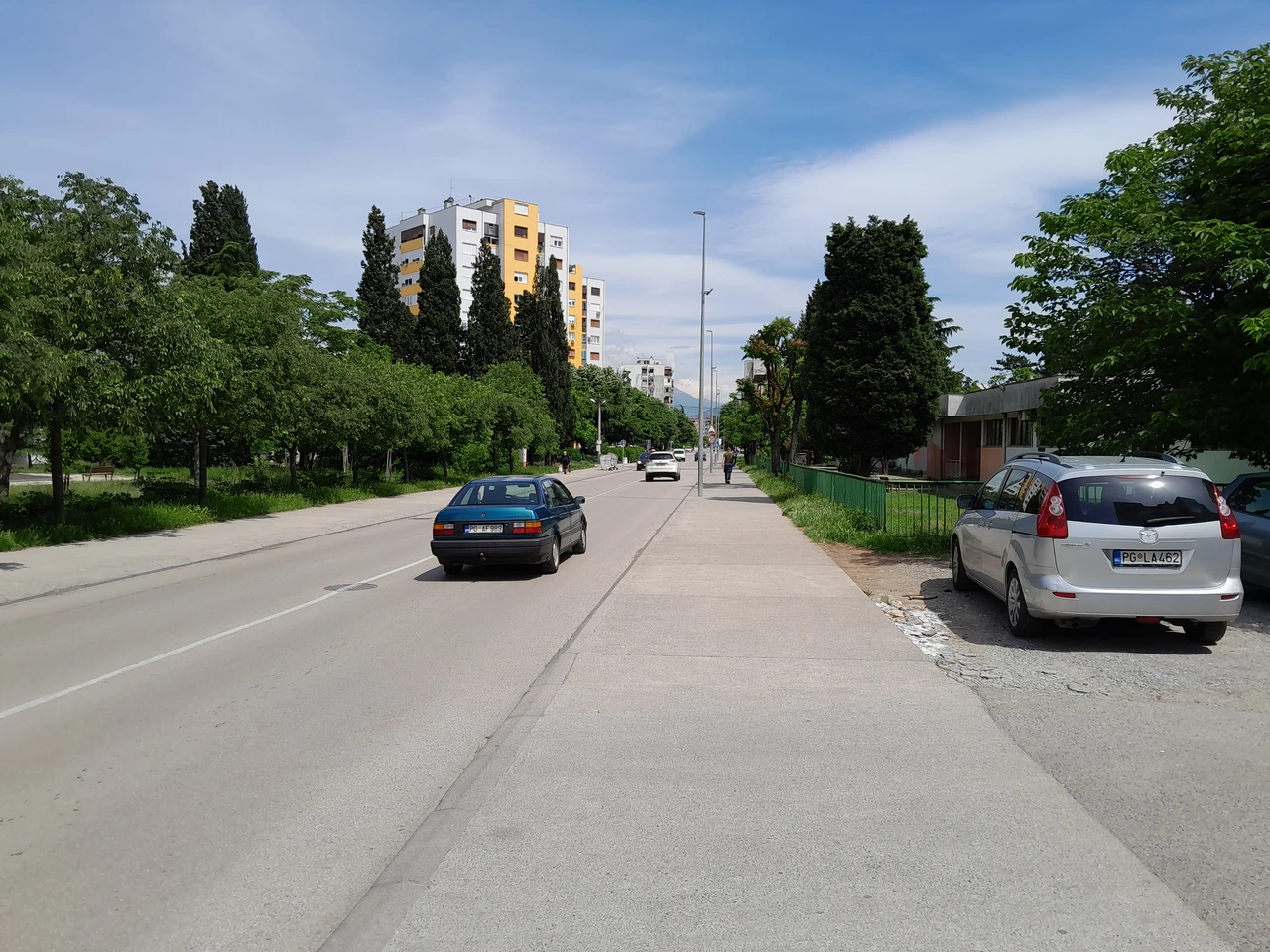
Montenegrins are friendly, proud, and honest people. In fact, living here feels quite a bit like living in a small town in the United States, only the people here are really tall and speak a different language. Everyone knows their neighbors, word of mouth tends to be the biggest influence, and people don't hesitate to help if they see someone in need. Theft and crime are minimal, and your biggest concern everyday will probably be crossing the road or deciding what to eat for dinner. Single women will have no problems walking home alone at three o'clock in the morning, and there have been reports of expats hitchhiking across the country with great success.
After living in 18 countries, there are two main methods that I use to judge a culture's character.
The first method is to see how they treat animals, and Montenegrins are wonderful with animals. When you visit the farmer's market, there can be seven dogs just sleeping right outside the main door, and no one bothers them or disturbs them. When we visited my son's school, there were dogs happily walking along with the kids, parents, and teachers. No humans were afraid of the dogs, and no dogs were afraid of humans. This is also true for cats, pigeons, and pretty much any other street animal that you will run across in Montenegro.
The second method is to observe the traffic, and Montenegrins also score very high in this regard. Although Montenegro's road fatality rates are not as good as Singapore, Sweden or Canada, the country comfortably ranks ahead of the U.S. and China by considerable margins. Many locals here don't even bother looking left or right when they cross the road. They simply walk straight on ahead and trust cars to not hit them. I would never do that myself, just like I don't jaywalk regardless of the country, but it shows how much the people here trust other people. I have also had a couple of instances where cars would stop to let me cross a small road even when they were the only car on the whole street, something that has only happened to me when I lived in the small college town of Blacksburg, Virginia.
The bad thing about living here is that being a small country and having a limited economy, many things outside of the normal daily necessities are hard to come by. Specialty equipment, healthcare items, and even clothes outside of the popular norms may require asking a whole bunch of groups on Facebook to figure out exactly which specialty store might just have this particular item in stock, or you might have to fly to a nearby country like Italy or Germany to pick up the item yourself. This is quite similar to living in a small town and going into the big city to buy something, just on a national scale. It's also quite common to ask fellow expats to pick something up for you when they head back to their home countries or take a vacation somewhere.
However, if you've lived here for a while, you'll know how to stock up on the things that you need and enjoy what's readily available. As with the rest of Europe, fruits and vegetables are available on a seasonal basis, and they tend to be much more tasty than their counterparts in the U.S. or in China since they don't have to travel 3000 kilometers to appear on your grocery shelves. The bad thing is that you won't be eating watermelons during the winter, as every season has different items for sale.
Europeans focus on enjoying their daily lives much more than Americans or Chinese, and it shows in everything that they do from the rich flavor of a fresh tomato to spending hours in cafes all the way up to their healthcare systems and social safety nets. It's a slower, more peaceful and satisfying style of life, and perfect for those of us who want to escape the daily grind in other countries.
The Climate
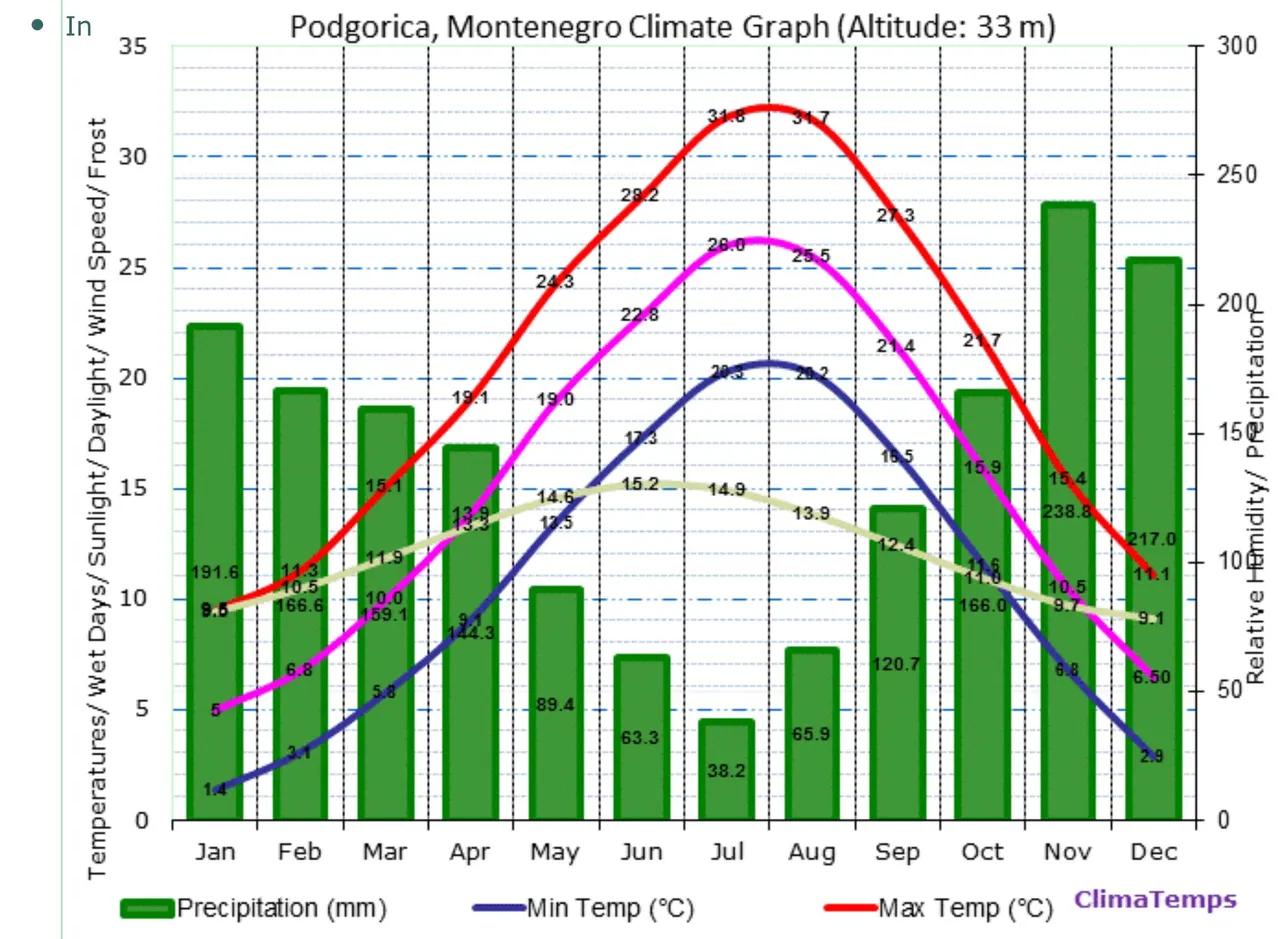
Montenegro has a Mediterranean climate like Italy and Greece, so it can become a bit cold in the winter to scorching hot in the summer time. For the time that I've lived here, I've seen normal temperatures from 12-5 degrees in the winter to 35-25 in the summer.
Podgorica is especially bad during the summer time, since it's a large plain surrounded by mountains on every side, so once it heats up, all of the hot air just stays in the basin and doesn't go anywhere. It's quite normal for Podgorica residents to abandon their normal homes in the summer time and go up north to visit family or even other countries in an effort to stay cool. Even the national TV station recommends that you don't go out between 10:00 to 17:00, and that if you do need to go out, use sunscreen and drink plenty of water.
Rainfall is concentrated in the winter while the summer tends to be hot and dry with many mosquitos and bugs appearing out of the woodwork. Despite summer being the tourist season, you'll have a much better time if you go visit the national parks before June and after August. Spring and fall are quite pleasant with flowers and mushrooms sprouting up everywhere, and are the preferred periods for natural activities.
Cost of Living
This is one of those metrics which vary widely depending on your lifestyle, but for myself, I probably spent about 1200 euros a month when I was living alone. This includes 100 for the accounting fees for my company, 550 for rent of a two bedroom apartment, 50 for utility bills, 120 for social contribution taxes, eating out twice a week, and various other activities.
After my wife, son, and dog arrived, we're probably now spending about 2200 euros a month, but we're living a comfortable life, eating well, and am polluting less than we ever have been.
The food in Montenegro is not quite EU standards, but it's still very safe and much more natural than the heavily processed foods which are common in the U.S. and China. Every neighborhood has their own playground, soccer field/basketball court, and markets. We run around on a 300 euro scooter for errands, and although we don't spend much time in cafes, we generally try to live life in the peaceful, calm European manner. The neighbors have been great, and my son has many friends around the neighbor while my dog probably has three times the amount of friends as my son since everyone likes shibas.
Residence Permits
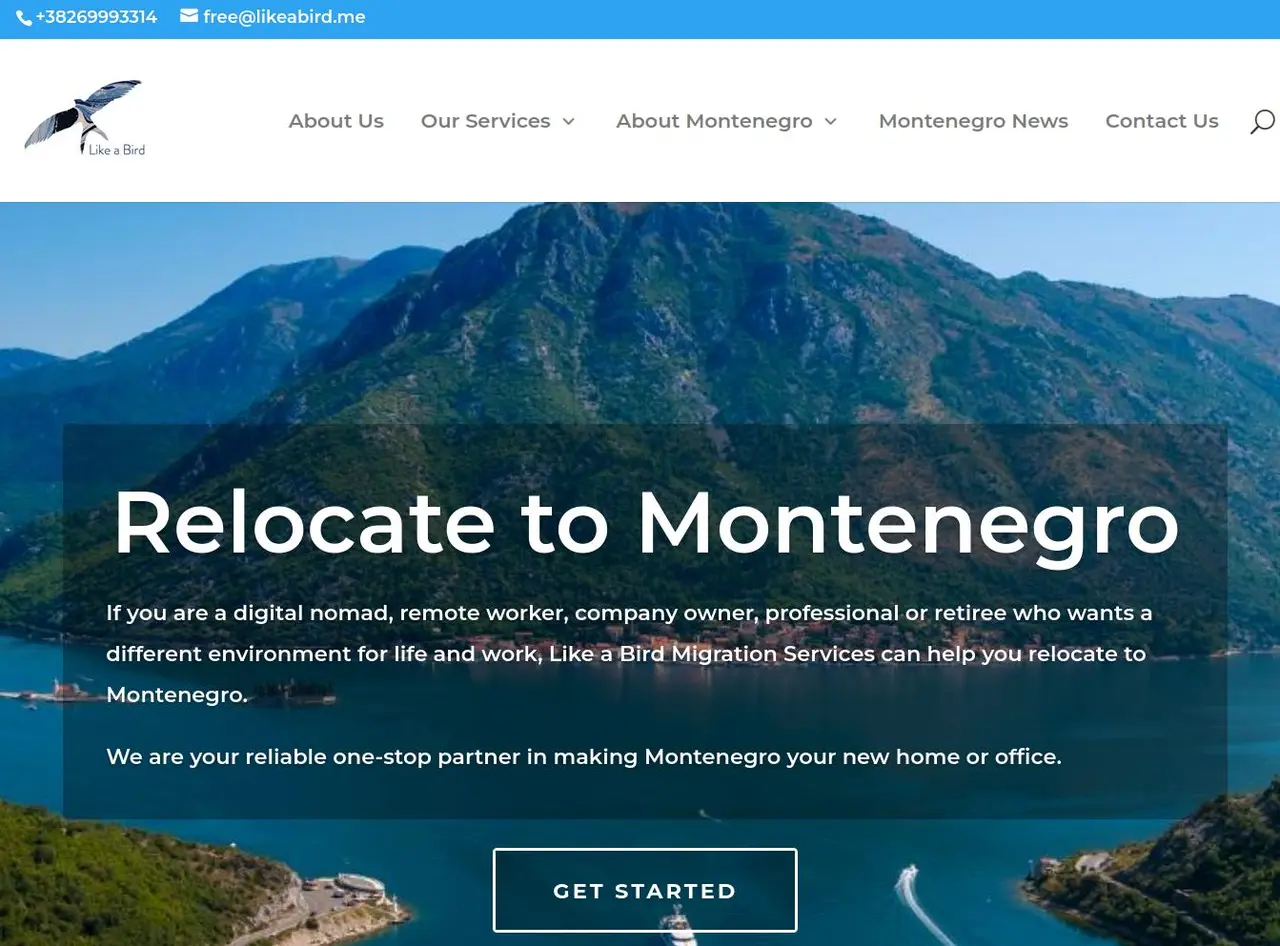
One of the things about Montenegro is that every single town and police station seem to have their own different procedures for doing things, and these procedures can also constantly change when new management arrives. Therefore, please ask an actual lawyer like Marko at Like a Bird for advice since the following information might be out-of-date at any time. In Montenegro, it's who you know that matters with regards to doing legal things, and a local lawyer will know vastly more people than you will.
However, if you want to live here for more than three months, then you'll probably need a residence permit. There's suppose to be a new Digital Nomad visa in the works, but no one seems to know when it'll come or what is required, so for now, a residence permit is the safest bet.
There are three primary ways to obtain a residence permit in Montenegro: buying property, starting your own company, or family reunification to someone who is already living in Montenegro. Depending on your country of citizenship, you might need to apply for a D Visa to start a company or a C Visa for family reunification, so be sure to ask your local Montenegro Embassy before you enter the country.
Of these three, starting your own company is the only legal way to be able to leave the country for more than a month out of one calendar year while still maintaining your time toward a permanent residence permit instead of just a temporary one. It also enables you to use the national healthcare system since you'll be paying social contributions out of your salary. You'll probably be paying 120 euros a month in social contributions and then 100 euros a month for your accountant, but this method is by far the most flexible way to live in Montenegro.
Buying a piece of property is also a popular method, but be sure that you buy through a qualified real estate company and that the property is fully legalized, especially for properties in the north. If not, then it's possible that you'll finish your purchase just to find that some little thing was not right and that your property actually should have belonged to someone else, and that's not something that you want to try to manage in a foreign country.
Once you get your residence permit, then you can renew it every year until the fifth year, where you can apply to turn it into a permanent residence permit, allowing you to come and go as you please without any time limitations.
All forms of residence require a criminal record certificate from your home country. However, if you're applying for a work permit either for yourself or for another company, then you'll additionally need proof of education in the form of your high school or college diploma along with your transcript. All documents need to be translated into Montenegrin by a government approved translator, so it's best to give scans of everything to your lawyer before you arrive in Montenegro to avoid running back and forth between your home country and Montenegro if something isn't quite right.
If you aren't buying property, you'll also need to have proof of residence by renting a place for 12 months. This can be easily found on Realitica and estitor.com , or you can search on Google Maps for " nekretnine " to find real estate agencies near your desired location. Your landlord will give you a notarized contract along with a " list nepokretnosti ," which is proof that he or she actually owns the property and is able to rent it out to others.
Internet
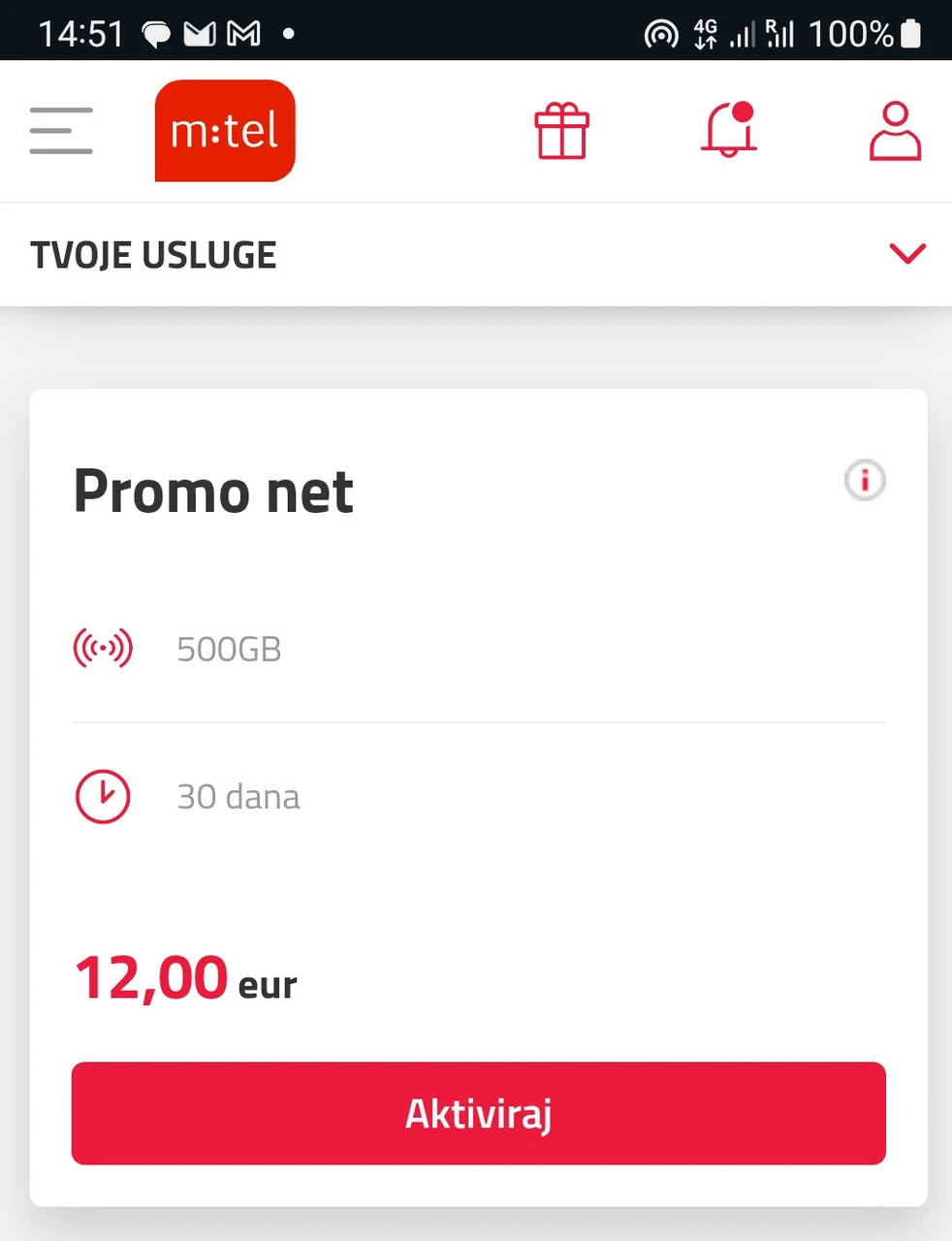
Montenegro is one of the best countries that I've been to with regards to mobile connectivity. As a tourist, you can choose from three plans, 10 euros for seven days/500GB, 15 euros for 15 days/500GB, or 20 euros for 30 days/1000TB. You would have to try very hard to actually use 1000TB in a month while you're traveling unless you're downloading huge Steam games or 4K video all the time. No matter which carrier you choose, they all offer the same plans with the same prices, so just pick whichever you encounter first.
If you're staying here long-term though, which carrier is best for you will depend on what you tend to do with your phone.
If you use data only without calling or texting, then MTel will be the best option for you. Every time your tourist package runs out, you can login to the MTel website, look under " Dodaci " for "Promo net" to get another 30 days/500GB for 12 euros.
However, if you do a lot of calling or texting, then it would be better for you to go with Telekom, as they have an add-on called " 500 jedinica 30 TRAJNA " for 15 euros. What this gives you is 500 units for 30 days, with one unit being one minute of a phone call, one text message, or one GB of data. This may not sound like much, but it's actually a pretty good deal for most people in the modern era since we tend to use data much more than talking on the phone, and we have WhatsApp and Viber for texting.
It's possible to get TV and Internet at your apartment for about 30-40 euros a month, but truthfully, I haven't even turned on a TV in the last five years since everything that I want to watch is on my computer or my phone nowadays. For my life in Montenegro, I just run around with my phone's 5G hotspot activated, and everything that I own connects to my phone no matter where I am.
This level of mobility and convenience is really not bad for 12 euros a month, especially when you consider that my bills from Spring and AT&T used to easily go over 70 dollars a month in the U.S.
Windows
The Mediterranean countries seem to have standardized on rolling shutters on all of their windows, and they are very convenient to use. They consist of horizontal strips of metal with links on the sides where the strips touch, and are controlled by a small box containing a strip of cloth beside the window. You simply pull the strip down to roll up the shutter, and pull the strip towards you to let the shutter down.
These shutters can block sunlight, rain, hail, and even mosquitos at night while still letting a bit of cool air into the house. It's possible to slowly lower the shutter, exposing small spaces between the strips where air can circulate, or quickly lower the shutter, creating an almost solid surface. Note that smaller bugs can still get through those small spaces, so if you have a bright light and live on the lower floors of a building, it's probably still best to use the solid surface mode and avoid having a whole bunch of bugs buzzing around your apartment.
The windows that I've used here in Montenegro are all double paned with gaskets on the outside, and do fairly well in insulating against heat and cold.
One cool feature that I've found with these windows is that the lock has three modes. Facing down locks the window in place to stop airflow. Turning the handle to the side allows horizontal opening as U.S. windows, and turning the handle facing up allows the window to tilt from the bottom edge. The tilted mode is especially useful for circulating air during light rain or avoiding dust if you live on the ground floor.
Electric Outlets
European electric plugs are not the same as American or Chinese ones, so be sure to buy a travel adapter if you are bringing electronics over, otherwise your phone and laptop chargers won't fit into the sockets.
Older electronics from the U.S. might also only accept 115V instead of the European 230V, so check the voltage rating written on your equipment. Converters are available, but rather expensive and not very useful for high wattage items, so it's probably easier just to buy a new appliance when you get here, despite the fact that electronics tend to be more expensive in Europe than in the U.S. You'll have a warranty, someone will know how to fix your equipment if it breaks, and it might work better than your previous item.
Personally, I rather like the European sockets, as you have a big plastic cylinder that has to go into a corresponding hole before any electrical connection is made, meaning that you won't have any situations where something might touch both prongs at the same time as with U.S. plugs. It's a bit more hassle than other plugs, but much safer for kids and ensures a more stable connection.
Introduction
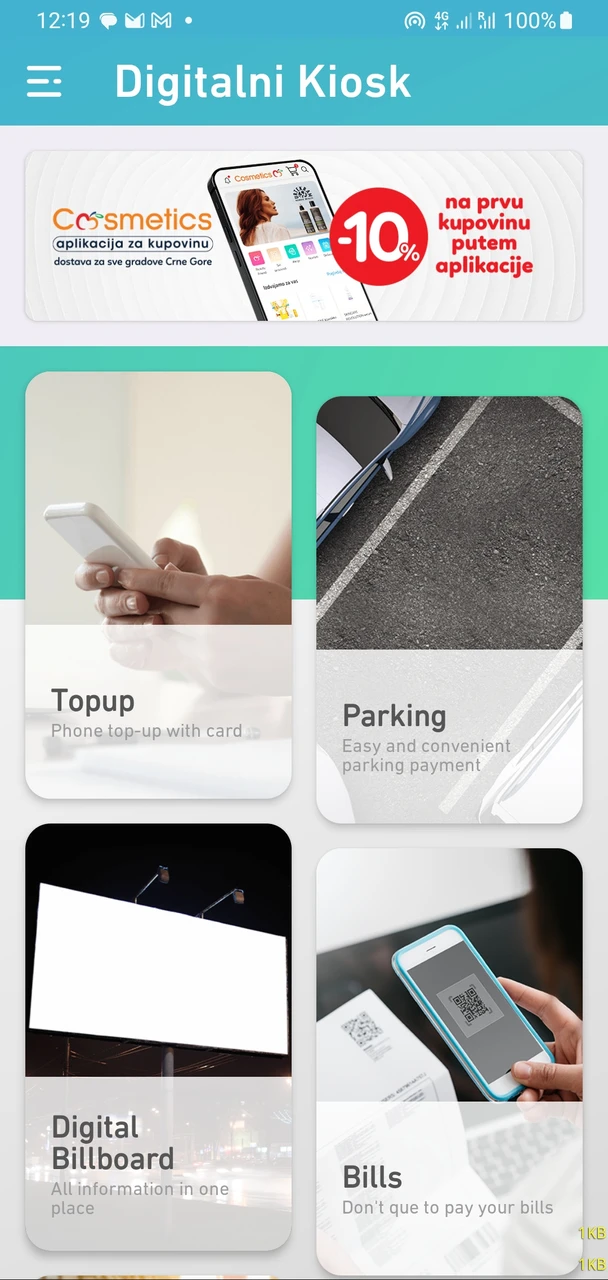
When I first rented my apartment, the landlord told me to go to any bank or the post office to pay my water and trash bill, so I dutifully went down to the nearby post office and paid my bills in cash since there was a five euro charge for using my credit card. The post office also added a 50 cent charge for paying each bill, but it's still better than the bank which charged me one euro per payment.
Since then, I've found a great application called Digitalni Kiosk. All you have to do is to download the app from the app store, switch the language to English, then put in your credit card information.
Afterwards, you can use your phone to scan the QR code that is printed on each bill, press "Pay," and let your phone do the work without any additional surcharges.
My trash bill is about 12 euros and my water bill tends to be around 6 euros, so that's 18 euros a month for these two. My landlord told me that the electric bill was usually a little late, so I patiently waited for the bill to arrive...
And after five months, I finally got my first electric bill of 132 euros.
Apparently, the electric company here doesn't bother sending out bills if it's not a large enough amount. I was using only about 20 euros of electricity per month since I was living by myself while waiting for my wife and son to arrive, and this was not enough to trigger the bill sending process.
This is just one of the fun idiosyncratic things about Montenegro, much like trains in Portugal not even bothering to check your ticket before you get on the train or Swedish stores being allergic to cash.
Buying Groceries
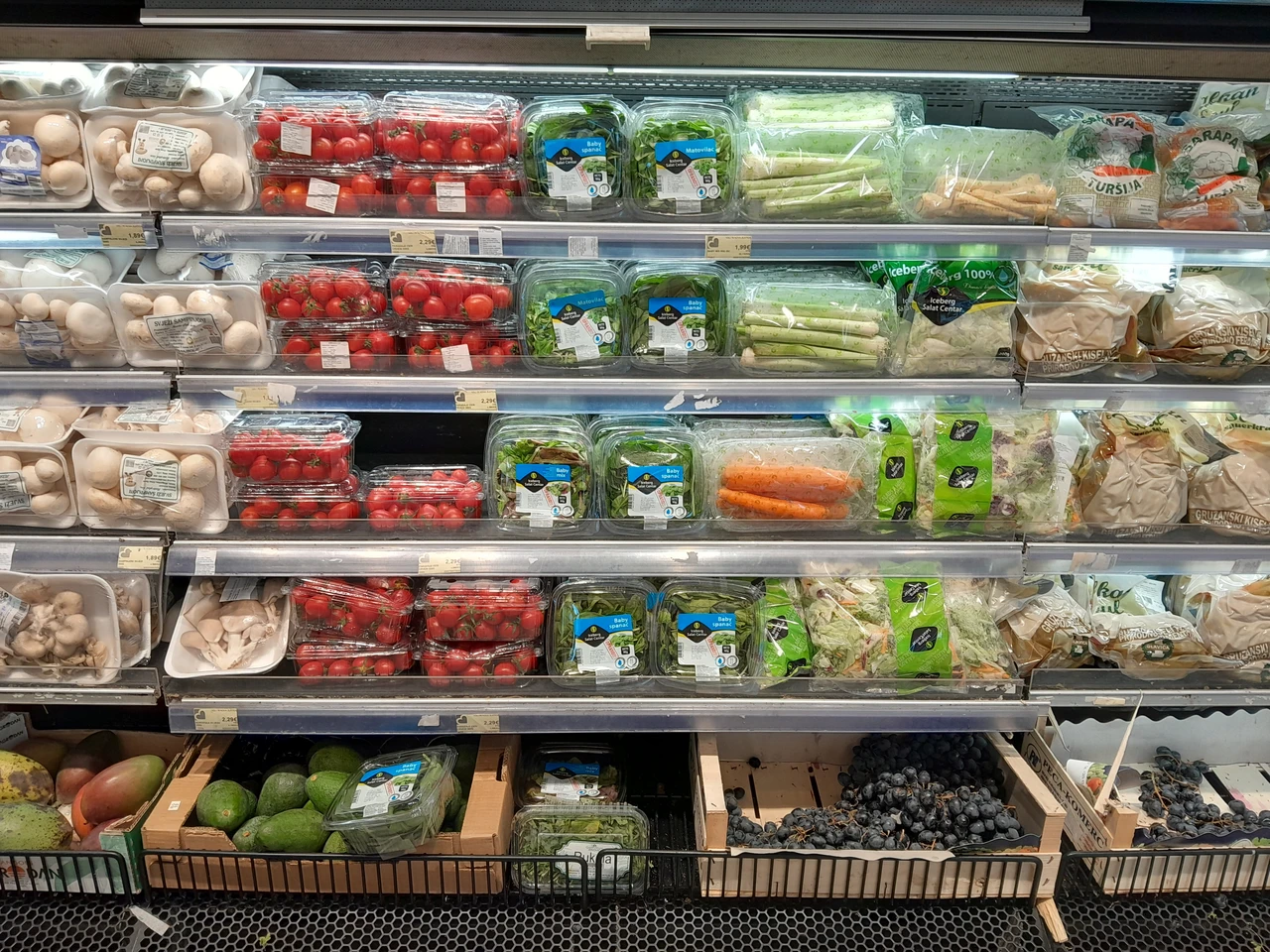
Supermarkets around the world have become pretty much the same no matter what country you're in, and Montenegro is no different. The cheapest comprehensive supermarket around town tends to be Idea/Franca with Voli to be slightly more expensive but carrying a different selection of items.
However, it's worth it to check out your local smaller supermarkets as well.
For example, one of the things which I buy on a weekly basis is Domaći Mix , a box of assorted chocolate treats.
This exact same box might be priced at 3.89 euros at Idea, but 3.39 euros at Naš Market , saving you 50 cents every time you buy from the smaller supermarket.
Most supermarkets mark items on sale with a yellow sticker instead of a white sticker, so be sure to look out for these stickers to save yourself some money if it's something that you were going to use anyways.
Idea also has a rewards program as well. You can download an app called Super Kartica CG on the app store or get a physical card at a store, then look for special blue price stickers around the aisles. These savings can often amount up to 30-40% off of the regular price, so it's worth your time if you consistently shop at Idea or Franca stores.
It's also worthy to note exactly how many supermarkets there are around town.
In the U.S., I used to drive 15-30 minutes to head to a WalMart, Food Lion, or Kroger to do my shopping.
In China, it was about 8-15 minutes on an electric bike to the local farmer's markets, or 20 minutes to a big supermarket.
Now, I just walk outside the door to my apartment building, and there's a small supermarket ten meters right across the street.
If they don't have what I need, there's another supermarket about 50 meters behind me that has a bona fide butcher's shop and other amenities.
If I want to visit the local farmer's market at the Mall of Montenegro with lots of fresh fruits, vegetables, flowers, and a bazaar on the second floor, that's a 12 minute scooter ride away.
If you live in a small village, it might be a bit different, but I've found on my travels around Europe that it's quite common to have these little supermarkets tucked into neighborhood corners in any major city that you visit.
It's really convenient when you just want to grab something quick and head home, or if it's a rainy day out and you don't feel like spending too much time fighting the weather just to get dinner ready.
In Montenegro, like many other European countries, you need to weigh your fruits and vegetables yourself. This is normally done by putting your product into a small plastic bag, placing the bag on the scale, typing in a number code from the label into the display, and pressing a button to print a label to stick into the bag. It may sounds complicated, but just watch the person in front of you and you'll be fine.
Fruits and vegetables in Europe are available on a seasonal basis, so don't be surprised if your favorite item doesn't appear in the supermarket until the right month has arrived. Unlike the U.S., Europeans don't normally ship fruits from a couple of thousand kilometers away just to make a couple more sales. Local, fresh, and taste is the lifestyle here. I've seen zucchini prices fluctuate from 50 cents to 3.59 per kg depending on the season and how much rainfall we recently received, so there can be a very wide variation in prices from month to month.
Work Schedule
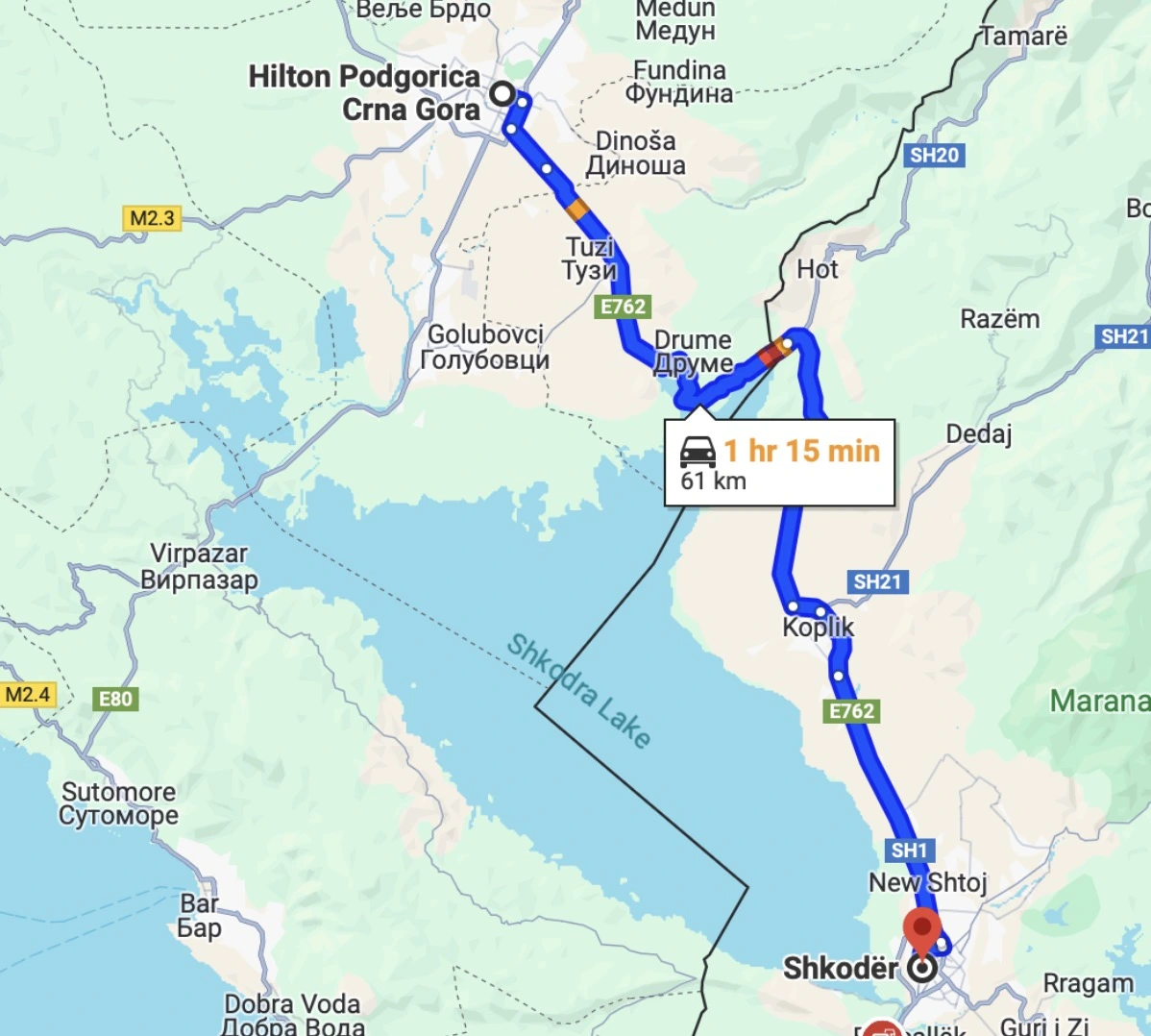
Most government offices along with banks in Montenegro will be open from 08:00 to 15:00. The main post office by the bus station where you'll get many of your international packages is open from 07:00 to 19:00. The worst office to go to is the Ministry of Education for translating documents such as your college diploma or your children's school transcripts, which opens for one hour during the morning and an hour and a half during the afternoon for a grand total of two and a half hours per day.
Therefore, it's always a good idea to check Google Maps for the hours of the business that you're trying to go to in order to avoid a wasted trip.
Montenegro, like many other European countries, closes down on Sundays. Only restaurants, gas stations, and tourism related businesses are open. This is also true for holidays, so when you notice that your local supermarket has a long line of people on Saturday evenings, that's a sign that you should probably get some extra groceries for yourself. You will never go hungry because you can always head to a restaurant or grab some snacks at the closest gas station, but it does make it a bit inconvenient if you wanted to cook Grandma's parmesan chicken and are missing a couple of ingredients in the middle of a three day holiday.
Since Podgorica is only an hour away from the town of Shkodër in Albania, many locals and expats who have their own cars will just drive to Shkodër, grab some groceries, and come back in the same afternoon. There have been many reports that certain things are cheaper or fresher in Shkodër, so it might be worth a look if you drive yourself. This is also true if you live in Herceg Novi or Kotor, which is close to the Croatian border.
Therefore, if you're really desperate for something and your favorite business isn't open, just head to another country and come back. This is highly unusual for Americans who don't live near the Mexican or Canadian borders, but makes a lot of sense when you consider that Europe and the U.S. are about the same size, only the U.S. has 50 states and Europe has 50 countries. Driving to another country in Europe is just like driving to another state in the U.S.
Getting Around
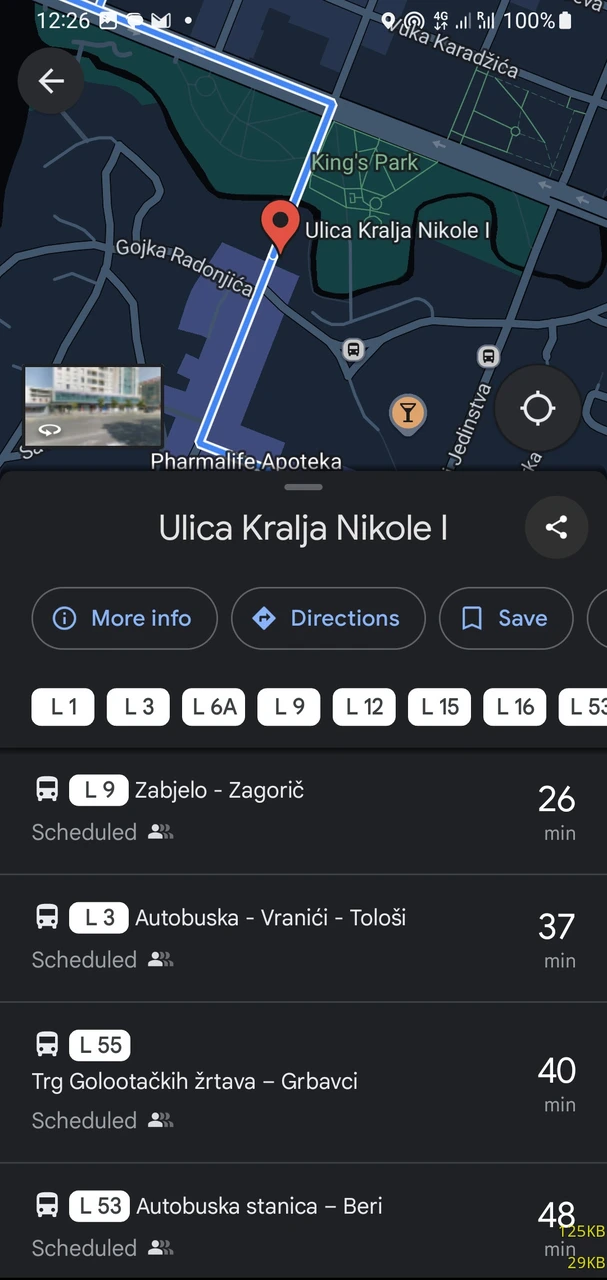
The bus system in Podgorica is available on Google Maps, so you can just tap on "Transit" to find your nearest bus stops and routes.
However, I do not know anyone who actually takes the bus, since many routes come only once per hour or more, and it can be faster just to walk to where you're going rather than waiting for the next bus.
Taxis are also a good option, especially with the Naš Taxi Podgorica app. Prices start at 60 cents with 60 cents per kilometer. However, if you need a taxi a couple of times per day, it can quickly become expensive to get around.
Therefore, most Montenegrins just walk, drive with a friend, or ride around on a scooter. I personally prefer the scooter, as traffic in Podgorica can be horrible during rush hour, and it's much faster to zip around on a scooter, especially on those roads which have the pink/purple bike lanes.
There are black and red shared scooters under the Hop brand around town, which you can use just by scanning a QR code. I personally find them to be rather bulky and hard to control, but you can try them for yourself. For longer routes, it's actually faster and cheaper just to take a taxi, so I haven't used them much unless I really need to.
It's possible to get little used scooters for 150 euros or so, but if you're going to be here for a while, I would recommend spending 350 on a new scooter from TehnoMax or one of the other electronics stores instead. You'll get a warranty, much better suspension, and substantially more range than one of the used scooters.
If you find yourself with a flat tire, head on over to a great English-speaking friend with his own professional garage and get yourself some silicone tires for 70 euros. They will never go flat, and you'll have peace of mind when you're riding around town.
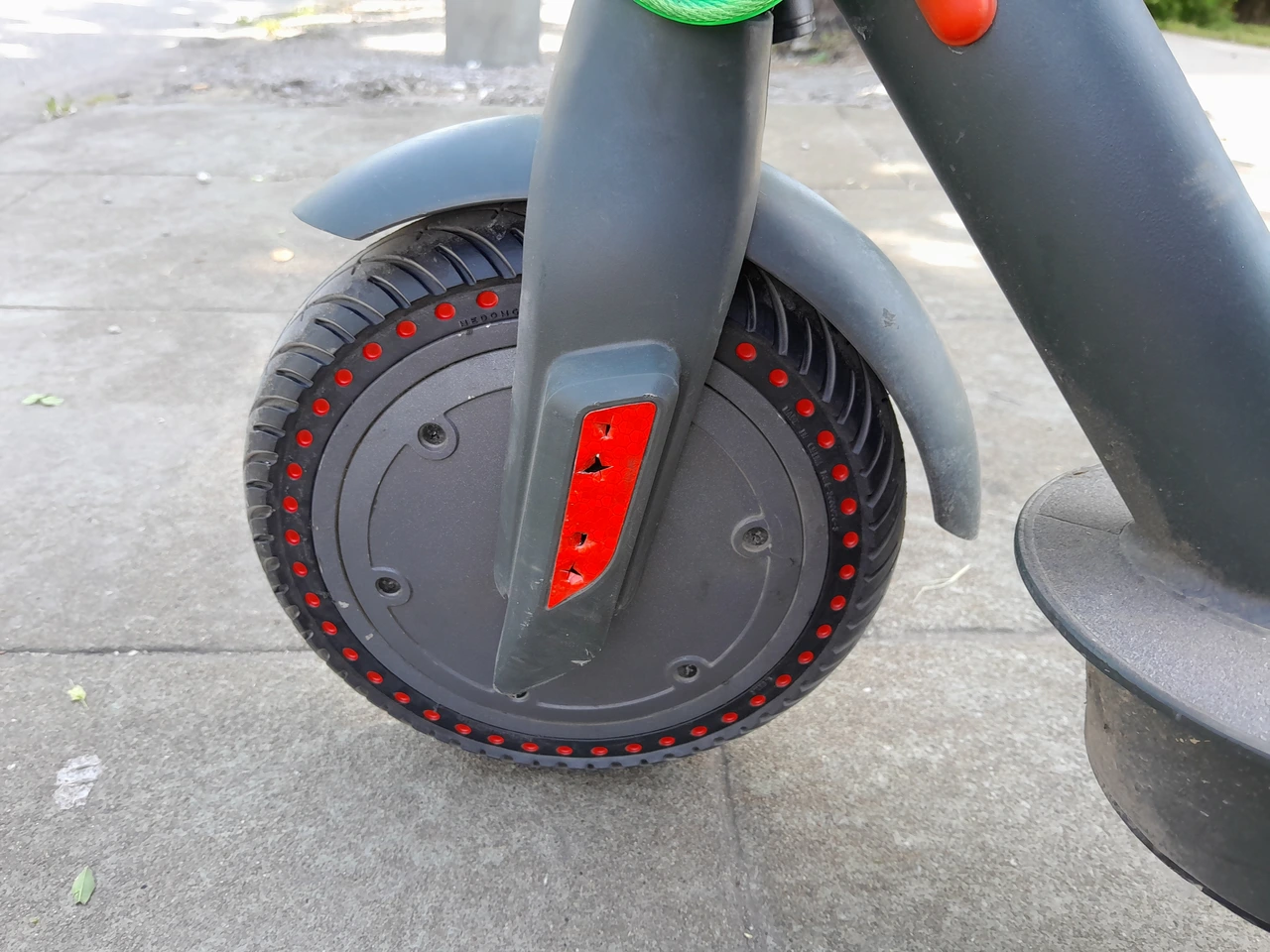
Just be careful when you're riding, as many people have had accidents when riding scooters on the roads, and there are quite a lot of drivers who will be annoyed if you're slowly riding in front of them blocking their way. Also avoid crossing the road on a scooter, as it's difficult for oncoming cars to judge your speed, and you might get hit by a car by riding instead of walking.
It's best to ride on empty sidewalks, and if there are many people around, then get off your scooter and walk for a while until the crowd clears. Montenegro is a peaceful, quiet country, and you should not do anything to disturb others. Living in harmony with your neighbors and nature is the best way to be happy here.
Restaurants
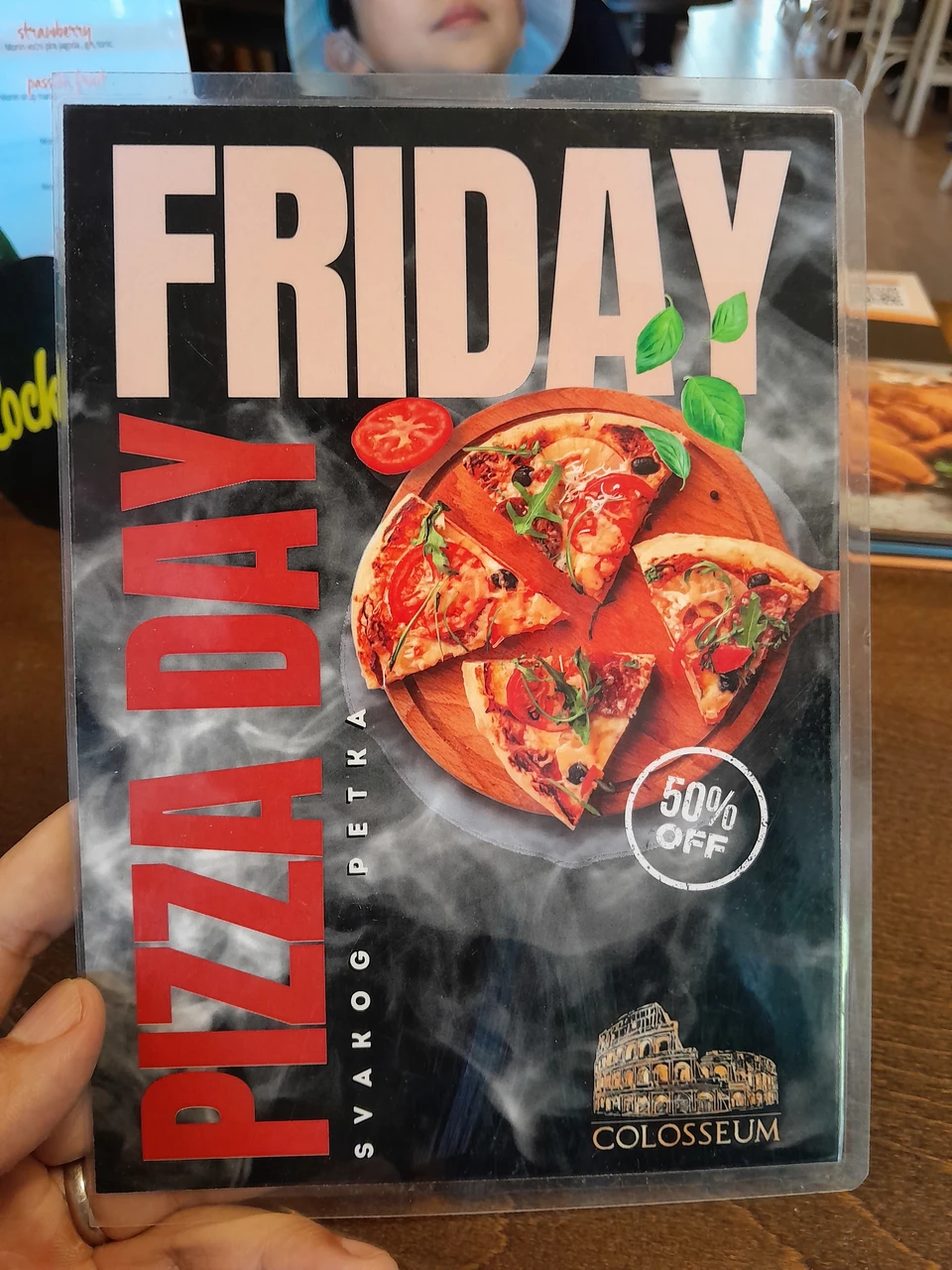
Podgorica is lacking quite a bit in the cuisine department compared to bigger cities, but hopefully this will improve as more foreigners come to the country.
My favorite restaurants so far are
| Local cuisine | Pod Volat |
|---|---|
| Asian | Chi Le Ma Plus |
| Mexican | Marquez |
| Indian | Masala Art |
| Middle Eastern | Arabian Tea House |
| Grilled Meats | Buffalo Roštiljnica |
But I tend to enjoy cooking my own food more than going out to eat, so you should probably ask someone else for recommendations, or look at the many pictures at Restaurant Guru to see which restaurant catches your eye.
Restaurant Guru is probably my favorite food website when traveling, as they have one of the most comprehensive and easy to search restaurant databases of any website on the web, not to mention that they tend to have better pictures and reviews than Google Maps. No matter where you are in the world, it's worth giving them a try.
Online Shopping
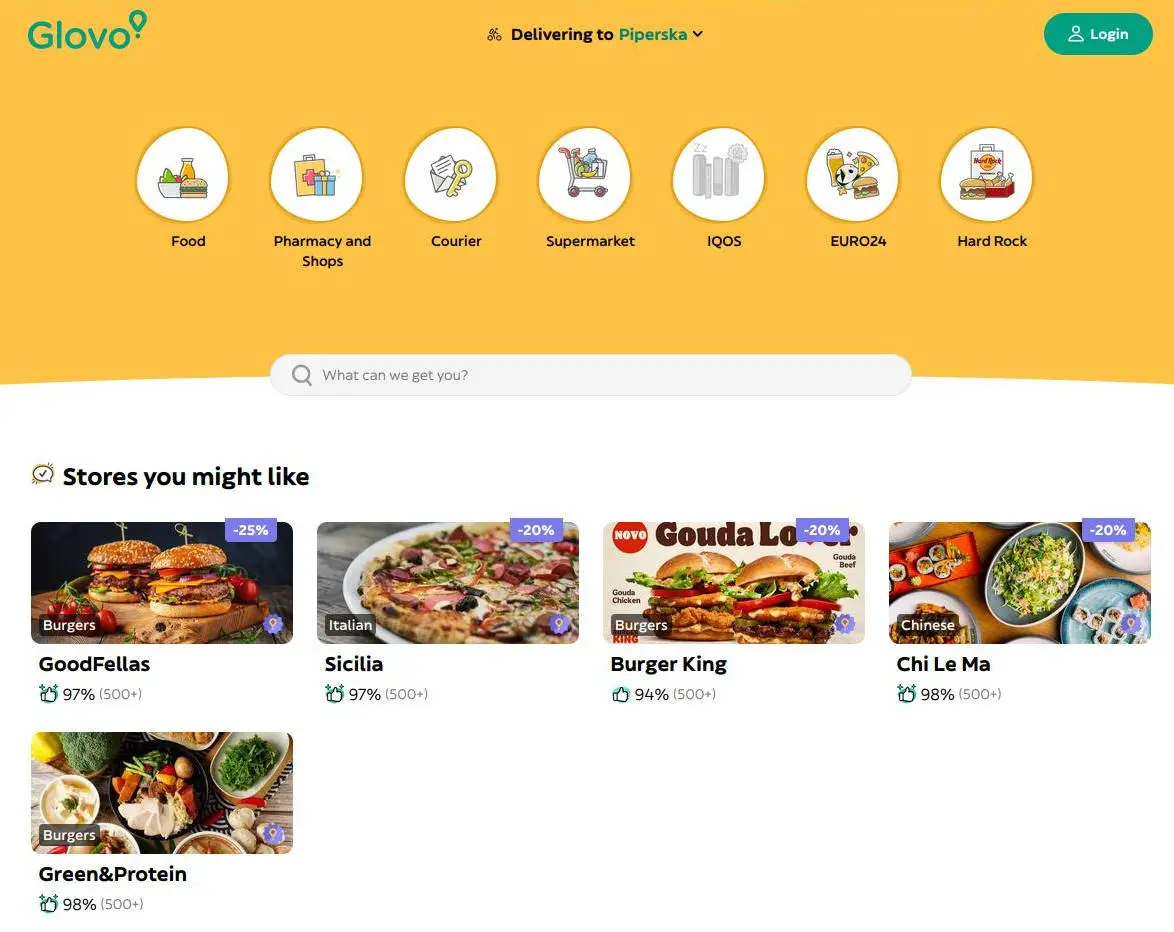
Most Montenegrins haven't quite embraced the Internet Revolution yet, so you'll find that most websites around here are more for reference than for actual shopping. About two thirds of the restaurant menu websites in town that I've tried don't even work anymore. Amazon.com is useless, and even Aliexpress deliveries are limited to a small selection of cheap or light items. For buying items online, I've resorted to renting a mailbox in Croatia and then having them forward packages to Montenegro. This setup can save up to 40% on some packages, and you won't get the dreaded "We do not deliver this item to your location" message.
However, there are quite a few local stores which have real, working websites. Most are electronics stores like TehnoMax, TehnoPlus , and Kernel , but also furniture stores like Okov and pet stores like PetMarket . Even Idea and Voli supermarkets have decent websites, although that's more to tell you what's on sale this week rather than something to let you sit at home and order groceries from your phone.
Personally, I've been burned by fake online products too many times (Amazon/Taobao SD cards, anyone?), so I like to try out products in person before I actually buy them.
If you're willing to take the risk though, most of these stores will deliver anywhere in Montenegro from one to three days with a two to five euro shipping charge.
Another option to get stuff to your house is to use Glovo. One of their ads say "We'll deliver anything that can fit inside our box," and they're actually serious about it as well. Just download the Glovo app on your phone, and you will see options ranging from food, supermarkets, pharamacies, and even courier services to pick up something from your friend's house to send to your front door. It's perfect for raining days or when you're sick in bed with a cold.
Apart from that, it's best to do things like the locals and spend your time browsing the Big Fashion Mall or the upstairs stalls above the farmers' market at the Mall of Montenegro. There's a good chance that you'll find what you're looking for, and you'll notice a lot more potential items for the future.
Nature
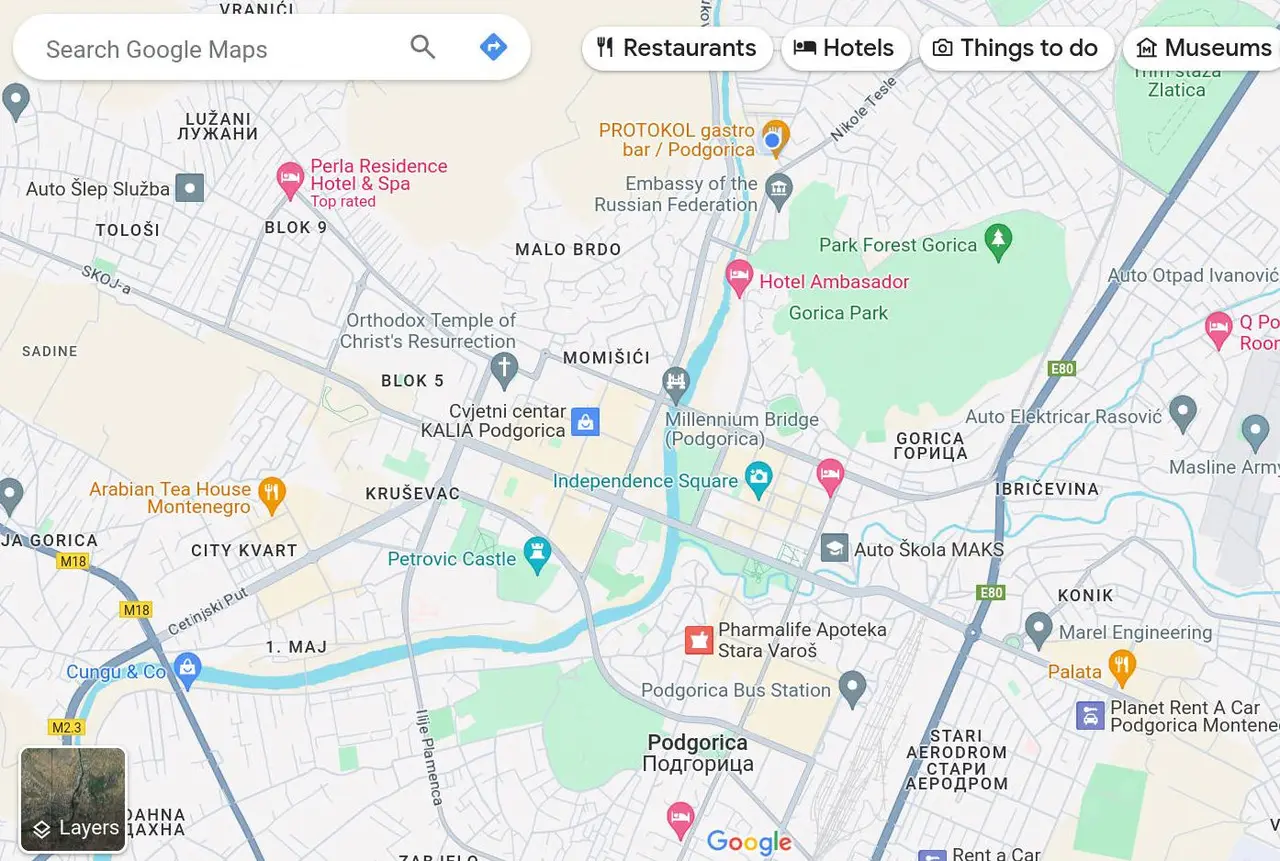
Green spaces are one of the things that I've found lacking for many cities within the U.S. and China, but Europe is full of parks big and small.
In fact, Podgorica has quite a number of parks, as you can notice by the green areas in the city center on Google Maps.
The parks tend to be well maintained, and there are even an abundance of benches to sit wherever you want. It's a very nice change of pace from other countries where you can walk for quite a while before encountering a bench to sit upon in a park.
Just be careful when you're walking in the grass, because there is a constantly self-renewing supply of dog poop that is both hard to see at night and lethal to the soles of your shoes.
It's also possible just go down to the Morača River to take a swim on a hot sunny day. There are plenty of spots along the roads where you can just park your bike, walk down a series of stairs, take off your clothes, and dip right in for a nice, refreshing time in the cold water. It's one of the cleanest rivers that I've ever seen inside a major city, and that's after I've visited Sweden, where the Stockholm Airport actually has a water fountain advertising how clean their water is.
Additionally, since Podgorica is a flat plain in the middle of mountains, you can pick a random direction, walk for a while, and you'll be hiking up a mountain.
However, I wouldn't suggest actually going up the mountain beside your neighborhood unless you have great shoes and thick jeans. The mountains here have many jagged rocks and large patches of thorny plants on them.
If you can get to the top, then you'll be rewarded with some great views of the city, but your feet and legs might suffer quite a bit after the trip is over.
Community
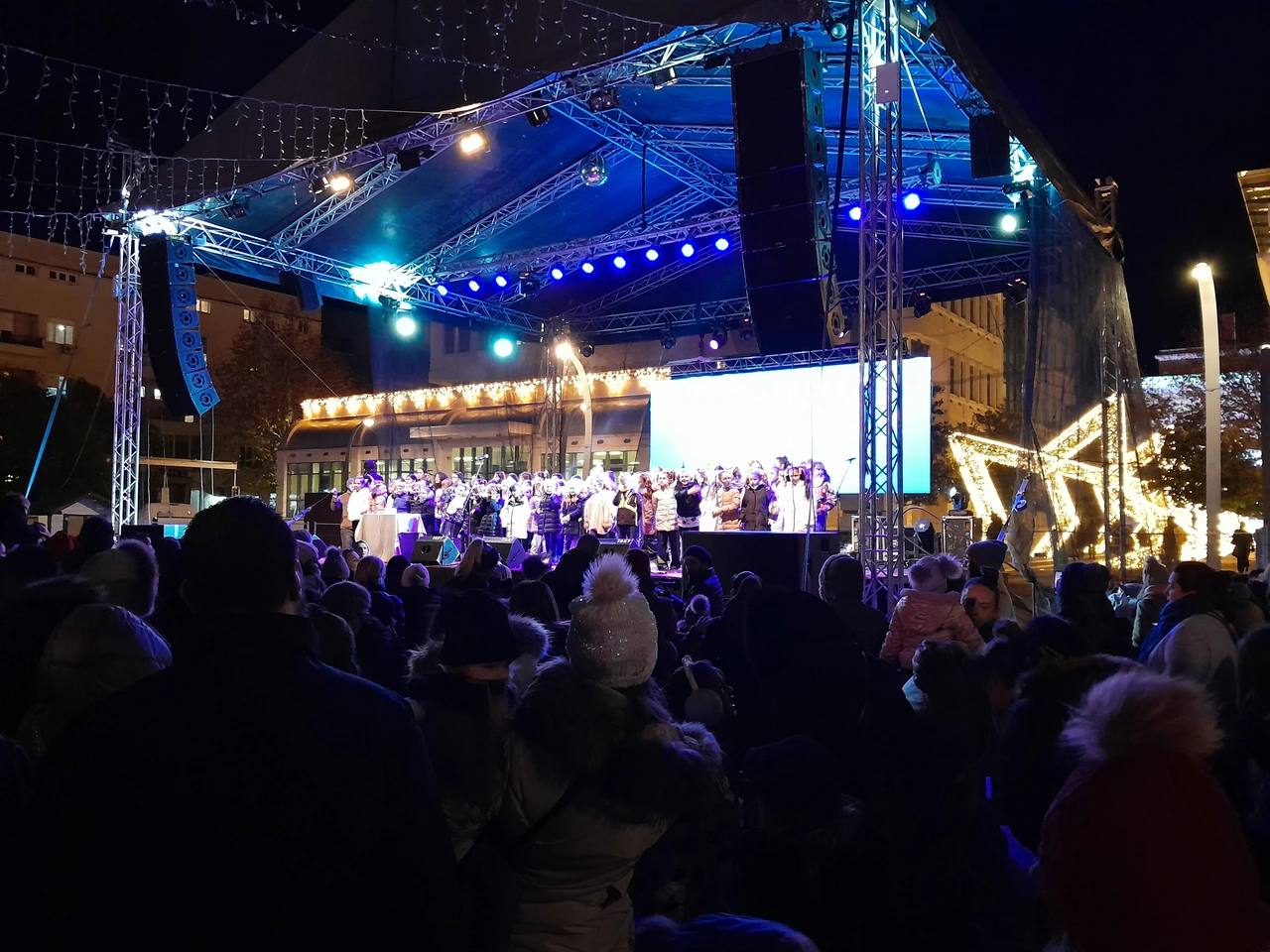
Montenegro has nowhere near the expat community of larger countries like Portugal or Italy, but there are sizable groups of Russians, Ukrainians, and Germans around.
As for us English speakers, the best way to connect with other people is actually on Facebook. There are two large groups called Foreigners in Montenegro and Word of Mouth Montenegro There are a lot of great information and friendly people in both groups, and it's worth your time to search previous posts before asking a new question.
The city level governments in Montenegro are constantly organizing community events for everyone, and a good portion of these events are suitable for English speakers as well. I try to keep a list of these events on my website here However, I'm just one person, and I don't know everything, so you should keep track of your local government's Facebook or Instagram page as well.
For example, the Podgorica Cultural Center will have free concerts, movies, and performances. American Corner has a library full of English books, DVD movies, and even an origami class that my son enjoyed. The Podgorical Tourism Organization has movies in the park, art exhibits, theater productions, youth choir performances, and during this past winter, they even organized two and a half months of free concerts in Independence Square in the middle of the city. That's 75 days of concerts from December to February.
If you're interested in gardening or just enjoy hanging out with a bunch of cool people from around the world, Podgorica has one of the largest community gardens in Europe in Urbana Bašta Kids and dogs are welcome as well.
There are also many different churches and religious organizations in the country. If you live in Podgorica and you're interested in going to a bilingual Montenegrin/English church service, just message me and I'll give you our current location.
Doing Business
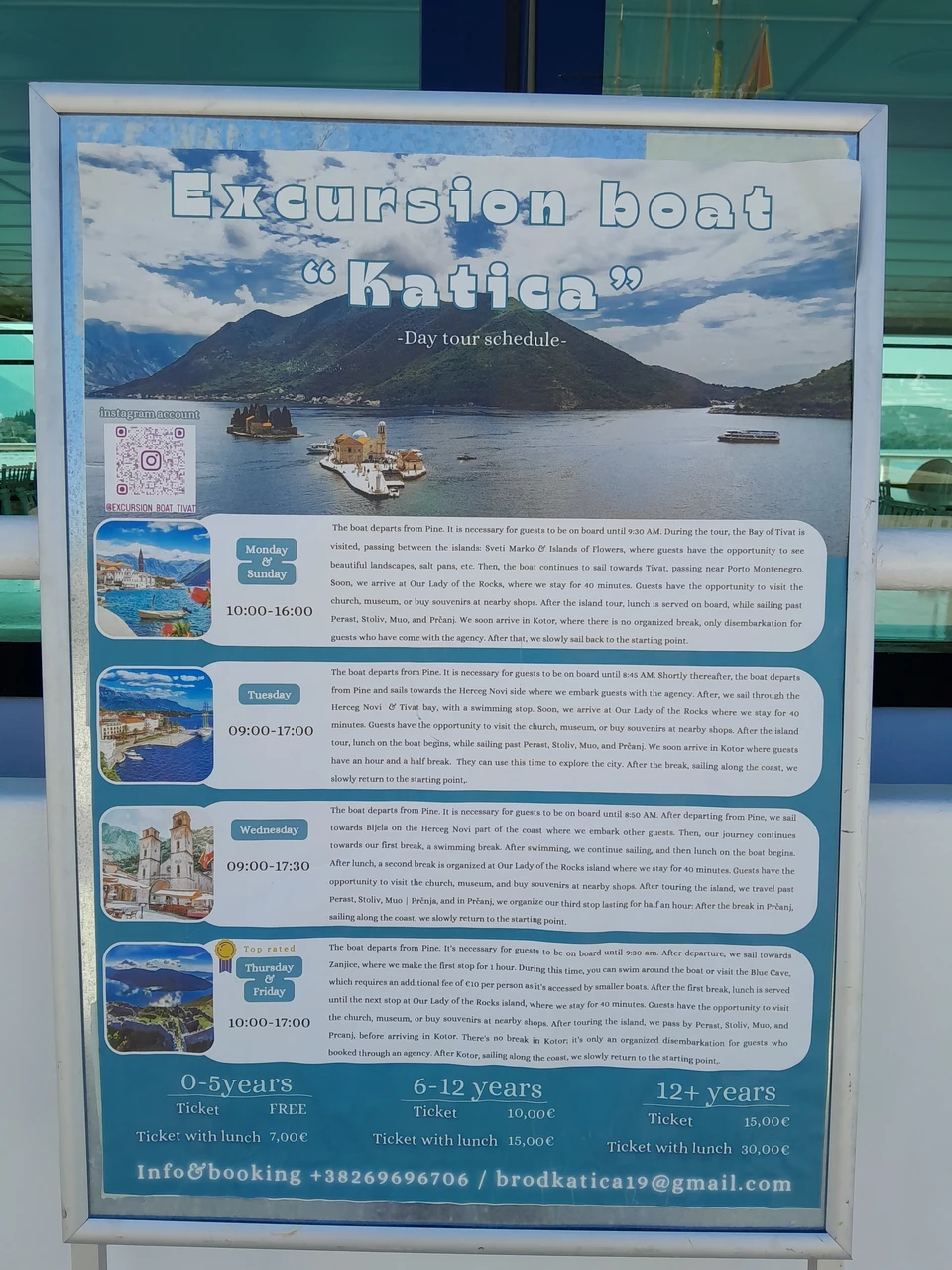
It's actually quite difficult to do business in Montenegro, as being a small market that's not a member of the European Union severely limits the services available. Many international payment services like Stripe and Square aren't available, and I have never been one to trust Paypal with a lot of money.
Wise has been my preferred method of international transfers for some time now, but transferring money to Montenegro will go through the SWIFT network, which means that the receiving bank will be taking 20-30 euros in transfer fees plus whatever fees any intermediary banks will take. Therefore, it's not recommended to transfer small amounts. The bigger the transfer, the less fees that you will pay as a percentage of the transfer.
Many Montenegrins tend to be a bit old fashioned and slow moving, so keeping up with the rapid pace of change in other countries is not quite on their minds as of yet. The younger generation are much better in this regard, but most of them aren't in positions to make business decisions, so if you want to actually make a bit of money, I would suggest targeting foreign businesses or businesses run by younger people who might be more accepting of your ideas.
The one exception to this is the tourism sector, where many business owners spend a lot of time trying to figure out new revenue streams to make more money. If you have someone to translate for you and you offer a good deal, it's quite possible that hotels, restaurants, tourism agencies, and other such businesses will be receptive and welcoming.
Things will certainly get better as more foreign investment comes into the country and Montenegro gets closer to becoming a member of the European Union, but as of right now, it's suggested that you have a revenue source from outside Montenegro rather than inside it.
Schools
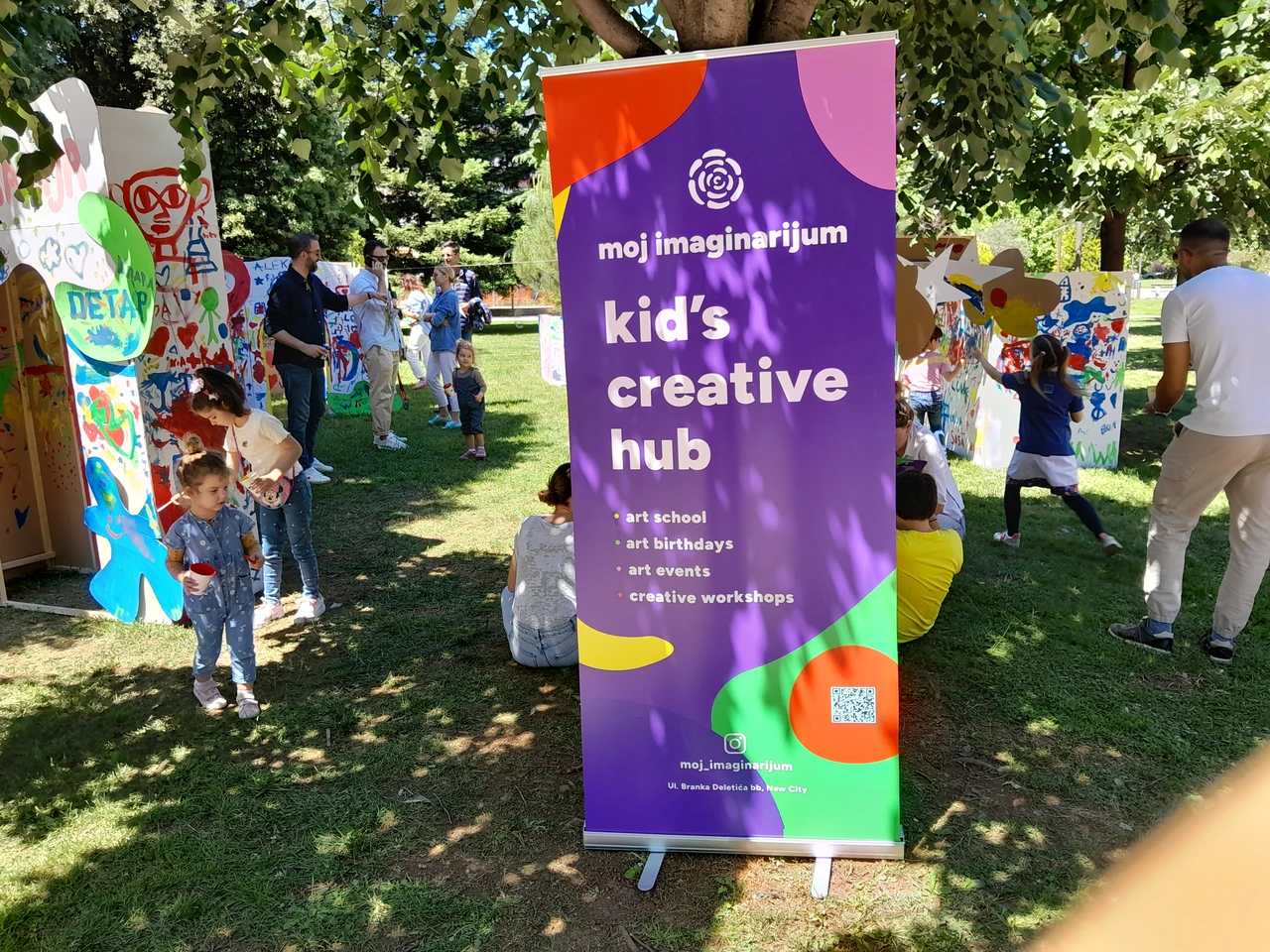
There are quite a few international schools in Montenegro offering American, British, and International Baccalaureate diplomas. However, I myself am sending my son to a local school to study Montenegrin since you never know when another language will come in handy, and I believe being part of the local community is very important if you actually live in a place instead of just visiting a place. All you need is your child's residence permit and a translated copy of the transcript from your child's previous school, and you can walk to your neighborhood school to register.
The school calendar runs from the first week of September to the middle of June, which is good because Podgorica gets rather hot during the summer, so kids walking back and forth to school in heat is probably not great for their health. Kids might go to school from 7:30-11:30 in the morning, or perhaps 1-5 in the afternoon. It all depends on the school and how they decide to schedule their classes.
From talking with other expats, Montenegrin schools tend to be pretty good in terms of education received, but many suffer from lack of funding and access to modern equipment. My son won't be in school until September, so I'll have personal experience to report at that point. Reports are that many schools are trying to follow the Finnish system of education, which is one of the best in the world, so hopefully the schools will improve along with the rest of Montenegro as the country continues to develop.
I myself have found the kids here to be very happy since they only go to school for four to five hours per day, are not stressed by their grades and performance, and have plenty of time to exercise and simply be kids. This is a huge difference from schools in China, and probably better than many schools in the U.S. as well.
Healthcare
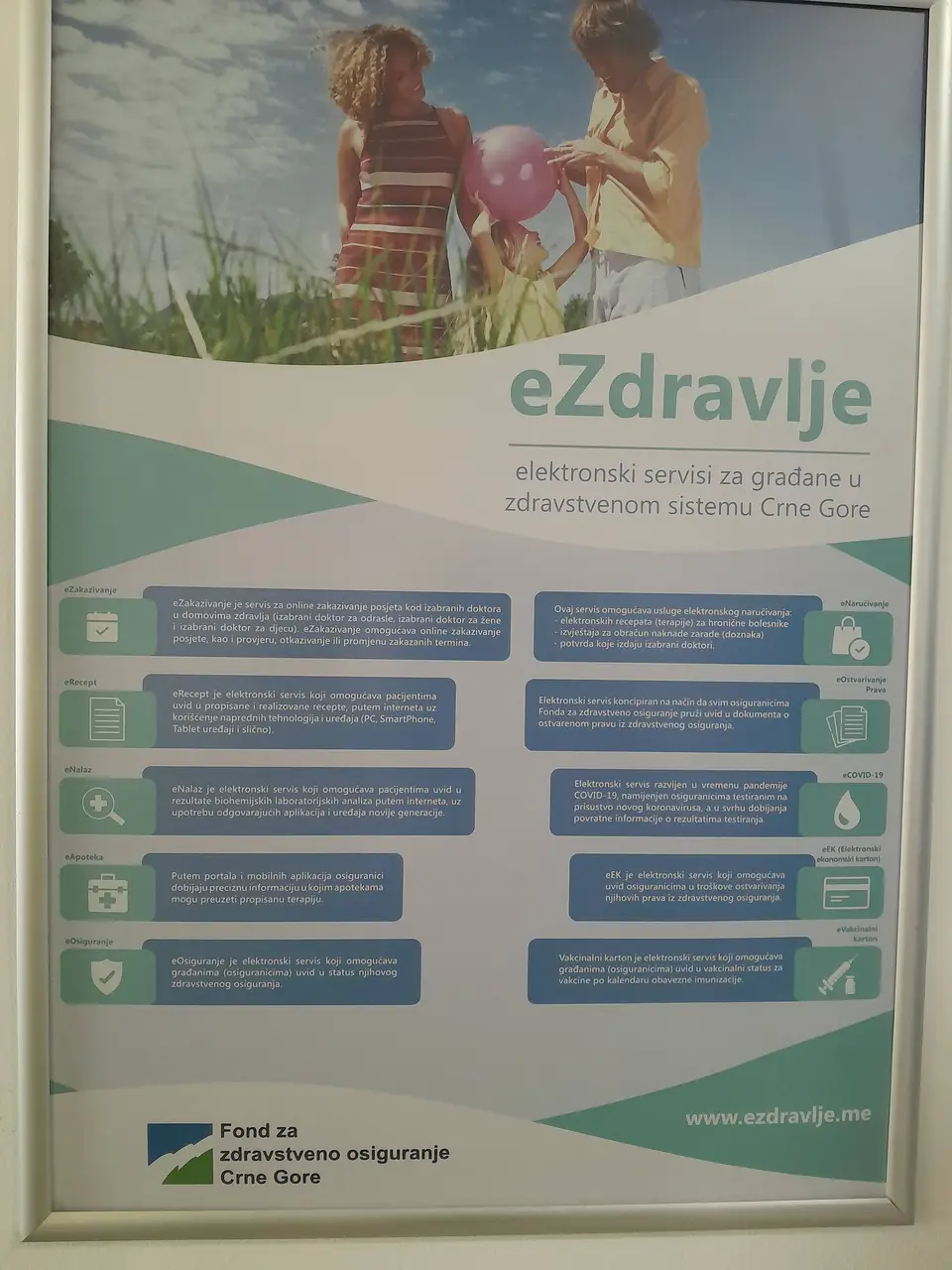
Healthcare in Montenegro is definitely not on the level of more developed countries, but it also tends to be faster and cheaper for simple issues, so there can be benefits to seeing a doctor here versus in your home country. Many expats also like to take medical tourism trips to Turkey, which is very close and has a wide assortment of medical procedures available.
If you work in Montenegro either through your own company or employment by another Montenegrin company, then you'll automatically be entered into the national healthcare system through your social contribution taxes.
If you're here via property ownership or family reunification, then you'll have to take care of yourself.
However, insurance in Montenegro tends to be quite affordable as compared to the U.S., and since many doctor visits are just 20-40 euros, many expats simply pay as needed with no insurance at all. I myself would never suggest that you should be without insurance in a foreign country though. Life can throw many unexpected events at you, and you never know when you might need the type of care that only a larger insurance company can offer.
Registering in the national healthcare system involves buying a little green healthcare book from a bookstore, going to the registration office with your residence permit, and then waiting a day to get your green book back. Afterwards, head to your closest public healthcare center (Search for " Dom zdravlja " on Google Maps) to get yourself registered under a family doctor. You'll get a phone number for your doctor, and he or she will be happy to answer any questions or concerns about your health.
If you prefer to do things on the web, there's also a web portal that you can use after you're registered. All you have to do is to put in your resident ID, the ID from your green book, and your phone number to get a PIN code to enter the site. Once you're in, you can schedule an appointment with your doctor, see which pharmacies can fill your prescriptions, and download any electronic certificates or vaccinations to your device. Of course, these are all in Montenegrin, so you'll need to translate the site in order to use it.
If you prefer private doctors since they tend to be faster and speak better English, then there are plenty to choose from. In Podgorica, Milmedica is a good general practice, while Barović is a great dentist.
For specialty needs, ask on the two Facebook groups mentioned in the "Community" section and see if someone might be able to assist you.
Pets
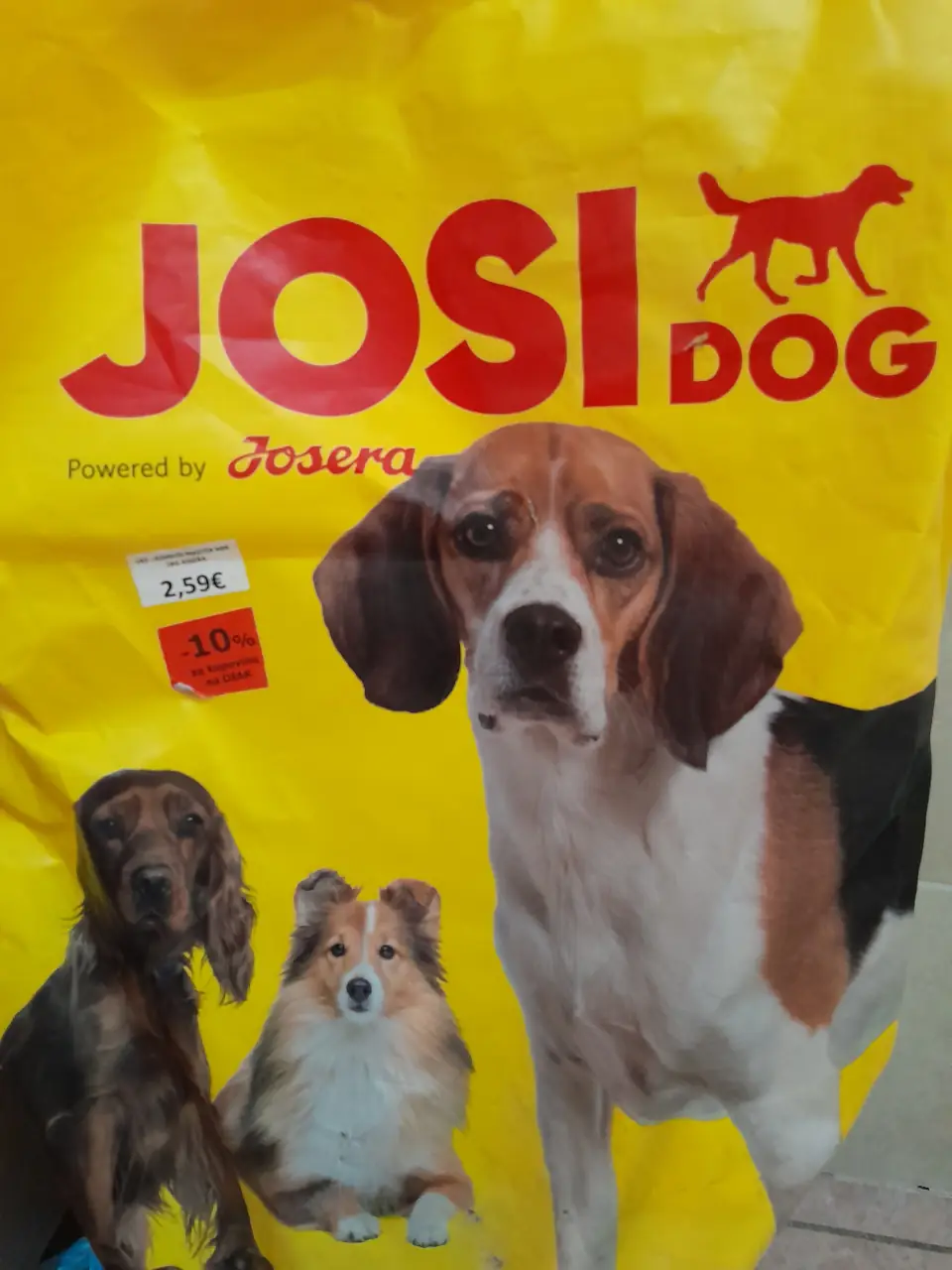
Montenegrins love cats and dogs, and you'll see them everywhere. Pet supplies are easy to come by, as PetCenter and PetMarket in Podgorica are both great stores that stock a variety of items for your furry companions.
For our dog, I picked up a 15kg bag of quality German dog food from PetMarket for 2.39 euros per kg, which is a great price for safe dog food. Our dog has been quite happy eating this food and has even gained a bit of weight in two months.
For veterinary services, RoyalVet has been great, and they even offer boarding services upon request for 10 euros per day. If you're heading out of town and don't have anyone to take care of your pets, then you can have ease of mind by keeping your pets with them.
The one bad thing about having a pet is that some landlords don't allow them, so be sure to ask if you can have a pet before you sign your rental contract.
Otherwise, Montenegro is a great and safe country for your pet to be with you and enjoy the great outdoors. Just watch out for ticks and other such parasites once you get out of the cities, and pick up some anti-parasite drops for your pet at the pet store for ten euros if needed. There are wild rabbits, snakes, hedgehogs, wolves, bears, and other such wildlife around, so keep an eye out for them, and stay safe.
The Montenegrin Language
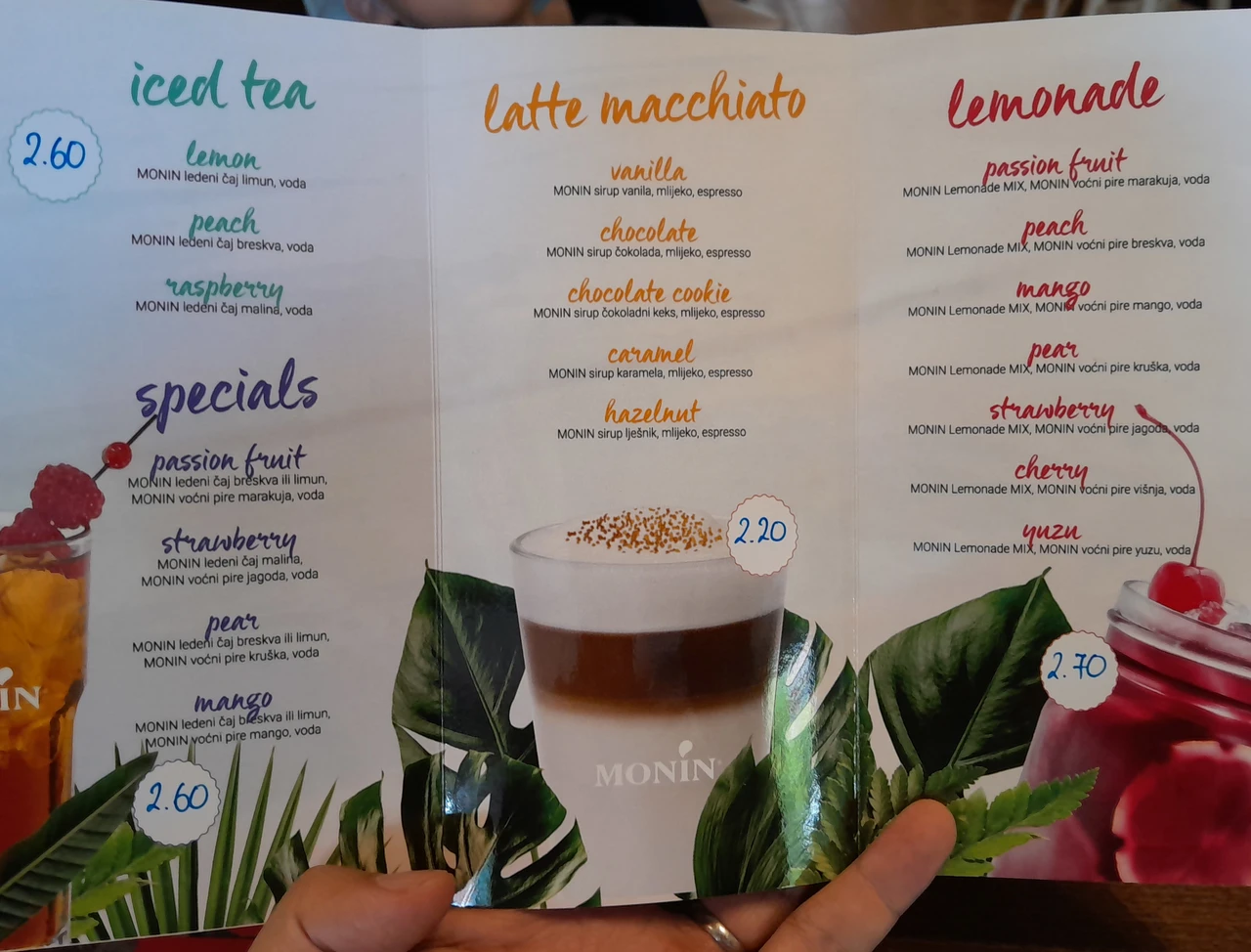
Montenegrin is a Southern Slavic language and is considered one of the more difficult languages for English speakers to learn. Personally, I frequently get lost in the conjugations and tenses, but I do enjoy the fact that like Spanish and Italian, it's a phonetic language where every character has one and only one sound, so it's much better than learning French in that regard.
Although Montenegro is a small country of only about 600k people, learning Montenegrin is useful outside of Montenegro since Serbian, Bosnian, and Croatian are also very similar akin to how American English compares to British English. Therefore, there are actually about 18 million people who speak the language in four neighboring countries.
Like Serbia, Montenegro uses both the Cyrillic Alphabet and the Latin Alphabet, but Montenegrins tend to prefer Latin much more than their Serbian counterparts, so it's much easier to read signs and websites here.
Alphabetically, most Montenegrin characters are very similar to their sounds in English. The exceptions that you'll need to know are
- Vowel sounds: a = ah, e = eh, i = ee, o = oh, u = oo
- y is a "j" sound
- c is a "s" sound
- š is like a "sh" sound
- č and ć are like "ch" sounds
- đ is like a "d" and a "j" together
- ž is like a "z" and "j" together
Some common phrases that you'll hear around town and their most common translations into English are
| Zdravo. | Hello. |
|---|---|
| Čao. | Hello or goodbye. |
| Dobro jutro. | Good morning. |
| Dobar dan. | Good day. |
| Dobro veče. | Good evening. |
| Laku noć. | Good night. |
| Izvolite. | Can I help you? |
| Izvinite | Excuse me. |
| Ništa. | No problem. |
| Doviđenja. | Goodbye. |
| Prijatno. | Have a nice day! |
If you find yourself unable to understand other people, open up Google Translate on your phone, go into conversation mode, and set the languages to Serbian and English. You'll be able to talk into your phone and let the locals read Montenegrin, which while awkward, is actually quite common around Europe, and the best way to communicate until you're used to listening to Montenegrin yourself.
If you decide to stay for a while, then it'll be worth your time to take a couple of Montenegrin lessons. There are plenty of good teachers on YouTube, and for face to face lessons, I recommend Radmila Radonjic She has a PhD in English, and used to work for the US Embassy, so she's well qualified to handle anything that you might need.
I'm also working on a Montenegrin course on this website for my son. It'll probably be a work in progress for the next year or so, but if any of you are interested, you're welcome to try it out on the condition that you send me your honest feedback. Just send me an email if you're interested.
Conclusion
So this is a small glimpse into what life in Podgorica is actually like from the experience of someone who has lived in the US for 20 years and China for 20 years. That's all for now, but if you think of anything that might be important, please let me know and I'll add it to this article.
Have a wonderful day, everyone!
About the Author |
|

|
Jim has been programming since he got an IBM PS/2 back during the 90s. To this day, he still prefers writing HTML and SQL by hand, and focuses on efficiency and correctness in his work. |
